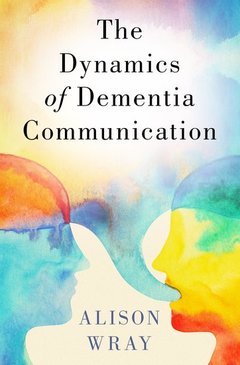Description
The Dynamics of Dementia Communication
Author: Wray Alison
Language: English
Subjects for The Dynamics of Dementia Communication:
Publication date: 07-2020
352 p. · 16.1x24.3 cm · Hardback
352 p. · 16.1x24.3 cm · Hardback
Description
/li>Biography
/li>
WINNER of the 2021 British Association for Applied Linguistics Book prize It is well recognized that when people are living with a dementia, effective communication can be a challenge for both them and those they interact with. Despite a plethora of good advice, it can be surprisingly hard to sustain constructive communicative behaviours and to integrate them successfully into routine daily care and interaction. The Dynamics of Dementia Communication asks why that is. What is it about communication, as a human social and cognitive practice, that makes it so difficult to manage the disruptions caused by dementia? Why is it so common to feel awkward, confused or irritated when talking with a person living with a dementia? Why is the experience of living with a dementia so personally and socially devastating? What approaches to communication would work best, and why? To answer these questions, the book integrates information from a wide range of different sources, covering the biological, social, and emotional factors associated with the dementia experience. New concepts and theoretical perspectives offer novel ways of thinking about the challenges of communication generally, and in the context of dementia. Topics explored include whether it is acceptable to deceive people living with a dementia and why society's failure to support people living with a dementia and their carers is so devastating. The final chapter suggests what people living with a dementia need if communication is to promote and protect everyone's well-being. By providing a deeper understanding of what topples the best-intentioned attempts at interaction, and by explaining why poor communication affects everyone involved, this book sets new agendas for improving the welfare of people living with a dementia, their families, and professional carers.
Alison Wray took her BA and D.Phil in linguistics at the University of York, UK. After completing a postdoctoral research project on singers' pronunciation in the Department of Music at York, she held a lectureship in linguistics at the then College of Ripon and York St John (now York St John University). In 1996 she was appointed Assistant Director of the Wales Applied Language Research Unit at Swansea University, and in 1999 became a Senior Research Fellow at Cardiff University. She became a (full) Professor at Cardiff in 2005 and a Research Professor in 2007. She is internationally known for her research into formulaic language, publishing two seminal books on the topic in 2002 and 2008. Since 2008 she has focussed on understanding the challenges of communication by and with people living with a dementia and has presented on this topic in countries around the world.
© 2024 LAVOISIER S.A.S.

